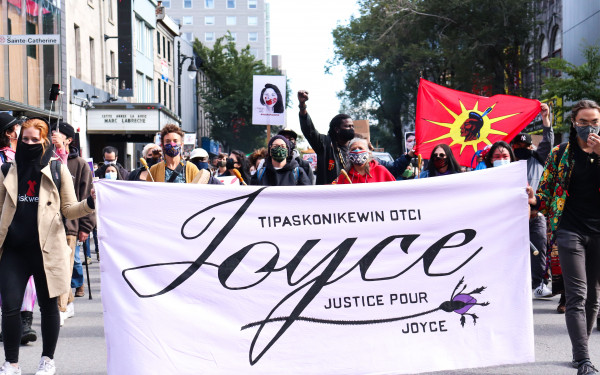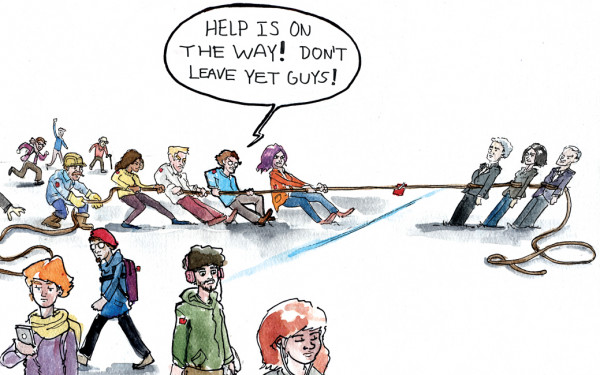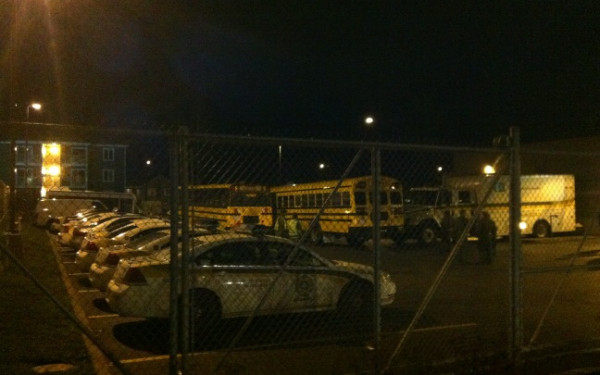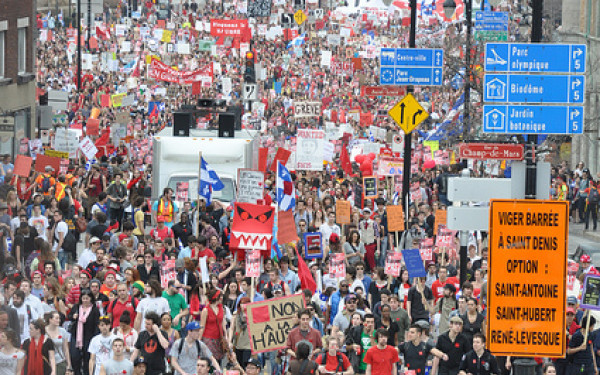Connecting the Dots – The Influence of Racism and Colonialism on Police Violence
Panelists illustrate the often unspoken epidemic of police brutality against ethnic minorities in Canada
“I had my hair pulled,” Clifton Nicholas said. “I had a baton put between my legs to hit my testicles.”
This was only one account of police violence Nicholas, an activist and filmmaker for his Kanienkehaka community in Kanehsatake, Quebec, experienced. He recounted multiple stories of police brutality involving friends and family for an audience at Concordia University on Wednesday night.
Nicholas, along with co-panelists Robyn Maynard, Nargess Mustapha and El Jones, each shared their views on Canada’s colonial origin, issues with racism and the impact these factors have on policing to this day.
According to Nicholas, a perception exists that the indigenous people invented criminality and emphasized that black and indigenous Canadians “see the same things” in terms of police discrimination, he said.
“We have to kiss white asses and people with no opportunity have to do that,” Nicholas said. “When you have that kind of lack of opportunity, you latch onto anything you can.”
Echoing similar sentiments, Mustapha, who identified herself as a Quebecer and Montrealer, raised concerns about police violence problems in her Montréal-Nord community.
1_897_1050_90.jpg)
She focused on the death of Fredy Villaneuva, an 18-year-old from Montréal-Nord who was shot and killed by a police officer in August 2008.
The story became a national headline partly because of efforts by a group she co-founded, Montréal-Nord Républik. The group demanded a comprehensive inquiry into the incident.
According to Mustapha, more education for the general public is needed to combat the police’s abuse of power.
El Jones, a spoken word activist and teacher, successfully led a “call-and-response” chorus during one of her poems from a Starbucks in Halifax, via a Skype call. The Montreal audience responded with, “hands up, don’t shoot,” after Jones’s initial call.
Jones referred to her city of Halifax as the “Mississippi of Canada,” making reference to the American state and its surrounding areas’ infamous history with the segregation of white and black Americans.
Like her fellow panelists, Maynard, an employee of sex workers’ rights organization Stella and co-host of No One is Illegal on CKUT, is an activist working with black and indigenous communities in Montreal.
3_900_1031_90.jpg)
Her discussion centered around the definition of normality in Canadian society and how members of migrant neighborhoods often face harsher penalties for crime.
“Many normal Canadians at some point have done a drug or two, shoplifted or got in a fight,” Maynard said. “But it’s only indigenous and racialized people that end up [portrayed] as monsters and have to end up living behind bars for that.
“People have softened their ideas on marijuana and it [has] faded out of the media focus,” Maynard added.
“It’s still being [used as a justification] to actually destroy the lives of black youths all across Canada.”
Speaking to a crowd full of students, Maynard dismissed the notion that absolute solidarity is possible between university protests against police violence and those of migrant communities, although she offered a suggestion on how students might use their privileged status.
“There’s a significant difference between being part of a student protest and being in a community with constant warfare,” Maynard said. “But when you look at student protests, for example, there’s something very powerful in using that media platform because they care about students.”
Correction: The original version of this article misquoted Clifton Nicholas as saying that the sale of drugs by indigenous people is a better alternative to assimilation to a white culture and economy. In fact, Mr. Nicholas does not advocate drug use. The Link regrets the error.

2_900_662_90.jpg)
4_900_557_90.jpg)





